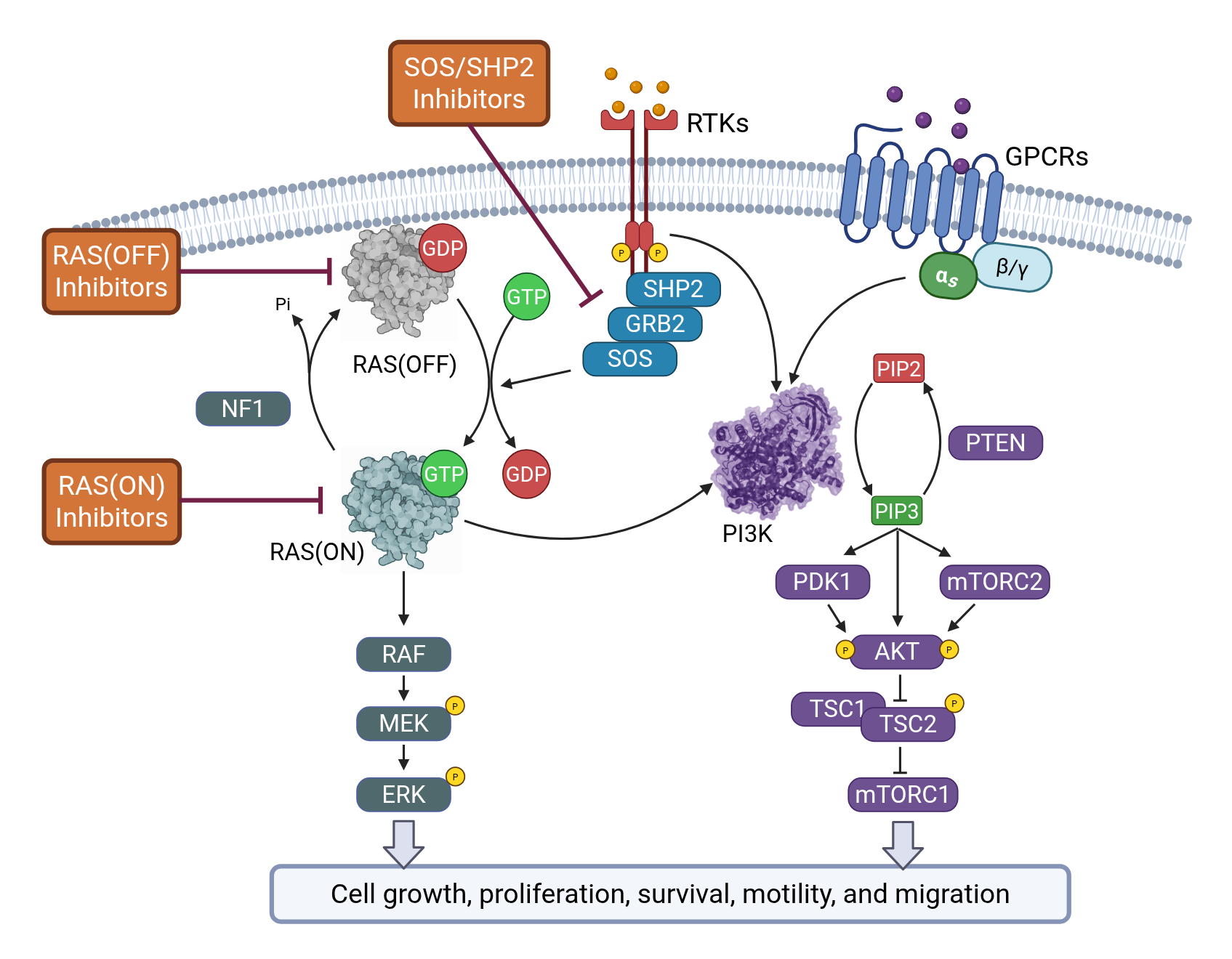New study maps the landscape of KRAS mutations and targeted therapies in colorectal cancer

The authors of the publication, from left to right: Maria Navarro, PhD, former member of the CGE, IGTP, currently working at Ability Pharmaceuticals, Nuria Mulet, MD PhD (ICO, B-ARGO), Cinta Hierro, MD PhD (ICO, B-ARGO), Beatriz González, PhD (CGE, IGTP) and Sergio Alonso, PhD (CGE, IGTP).
A team of researchers from the Germans Trias i Pujol Research Institute (IGTP) and Institut Català d'Oncologia (ICO) has studied alterations in the KRAS gene in colorectal cancer by combining genomic analyses with a systematic review of targeted compounds and clinical trials. Their findings, published in the journal npj Precision Oncology, provide and updated overview to guide future advances in this cancer's treatment.
Colorectal cancer (CRC) is the third most common and the second most lethal human cancer worldwide, with nearly two million new cases and close to one million deaths every year. This condition encompasses a heterogeneous group of tumours with distinct mutational profiles and biological behaviours.
KRAS is one of the most relevant genes in cancer. Although it was one of the first proto-oncogenes identified and the most frequently mutated driver in CRC, it was considered "undruggable" for almost four decades. This perception has changed substantially in recent years with the development of KRAS-targeted therapies.
Undestanding KRAS-targeted therapies
Researchers from IGTP and ICO -members of the Cancer Genetics and Epigenetics (CGE) and Badalona Applied Research Group in Oncology (B·ARGO) research groups, and part of the Translational Program in Cancer Research (CARE)- set out to investigate how KRAS-targeted therapies can best benefit patients with colorectal cancer.
Their initial assessment revealed that KRAS mutation and co-mutation profiles had often been oversimplified in previous studies, despite their critical role in determinining tumour biology and treatment response. At the same time, most early KRAS-targeting compounds were developed against the KRAS G12C mutation, which has a low incidence across the main molecular subtypes of colorectal cancer.
A large-scale integrative study
To address these gaps, the researchers launched a project in early 2022 to clarify the genomic context of KRAS mutations across CRC. They analysed three large patient cohorts (DFCI, TCGA and MSKCC) and validated their findings in a larger, partially independent dataset (MSK-CHORD). In parallel, they compiled and curated publicly available data on experimental compounds and clinical trials targeting KRAS and related pathways.
Since the project began, the KRAS-targeted therapy landscape has evolved rapidly, making it increasingly challenging to keep pace with new developments. Nonetheless, the team has produced an up-to-date and comprehensive overview of KRAS mutations, inhibitors and clinical trials in colorectal cancer over the last three years.
"The study combines computational genomic analyses with an exhaustive compilation of KRAS-targeting compounds and clinical trials, alongside a detailed literature review" explains Sergio Alonso, leader of the CGE Group at IGTP. "This integrative approach enhances the translational relevance of the work and provides a useful reference for both basic and clinical researchers interested in current KRAS-targeting strategies in colorectal cancer"
New insights into mutations and therapeutic development
The study refines the understanding of how KRAS mutations interact with other oncogenic pathways, revealing specific co-mutation patterns that may explain differences in tumour behaviour and treatment response. Notably, it challenges earlier suggestions that the NF1 gene might act as co-driver in KRAS-mutant colorectal cancer, while highlighting other associations that may have clinical relevance.
Beyond the genomic analyses, the researchers compiled a broad overview of compounds and clinical trials targeting KRAS and its upstream regulators -over one hundred agents and 156 ongoing or completed trials. Their findings reflect a clear shift from mutation-specific strategies towards pan-KRAS and RAS(ON) inhibitors potentially benefiting a wider group of patients. To promote further research, all curated datasets and the computational workflow developed for the project, have been made publicly available for reuse and adaptation.
"This study provides a timely and comprehensive resource to better understand the role of KRAS mutations in colorectal cancer and to guide future clinical research" addsAlonso. "Its open-data approach and focus on an area of highclinical interest aim to support the design of more informed studies and contribute toprecision oncology and patient care".

Reference
Navarro-Jiménez M, González B, Mulet N, Hierro C, Alonso S. KRAS-targeted therapies in colorectal cancer: a systematic analysis of mutations, inhibitors, and clinical trials. NPJ Precis Oncol. 2025 Nov 26;9(1):380. DOI: 10.1038/s41698-025-01166-3.
Funding
Sergio Alonso has received grants from the Fundación Mutua Madrileña (AP174232020) and Instituto de Salud Carlos III Spanish Ministry of Science, Innovation and Universities (FIS PI21/01766). Nuria Mulet has received grants from SEOM (Sociedad Española de Oncología Médica - Proyectos de Investigación 2024), Fundació Olga Torres (Beca Dionís Torres Segura 2024) and Instituto de Salud Carlos III Spanish Ministry of Science, Innovation and Universities (FIS PI24/00824).
